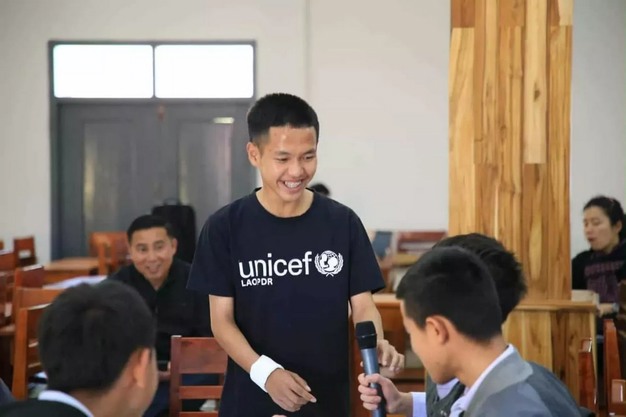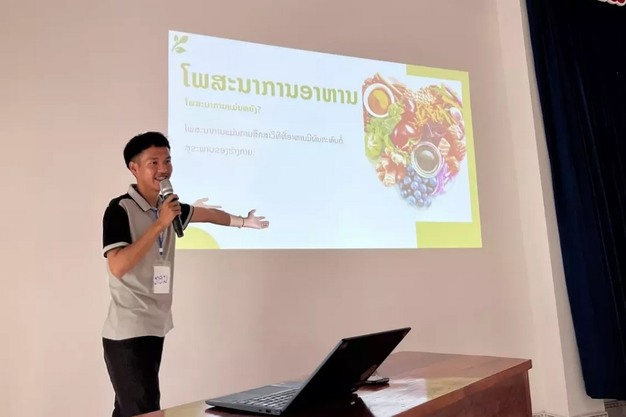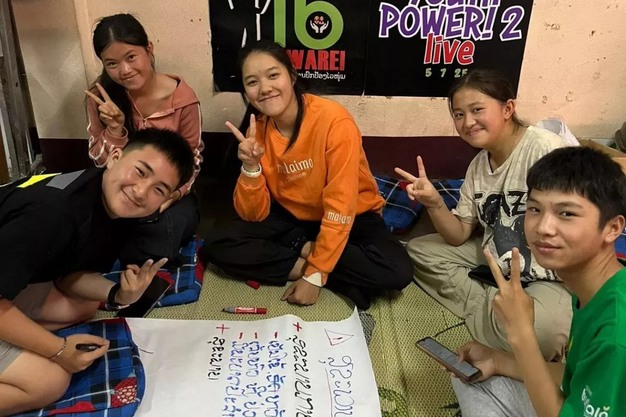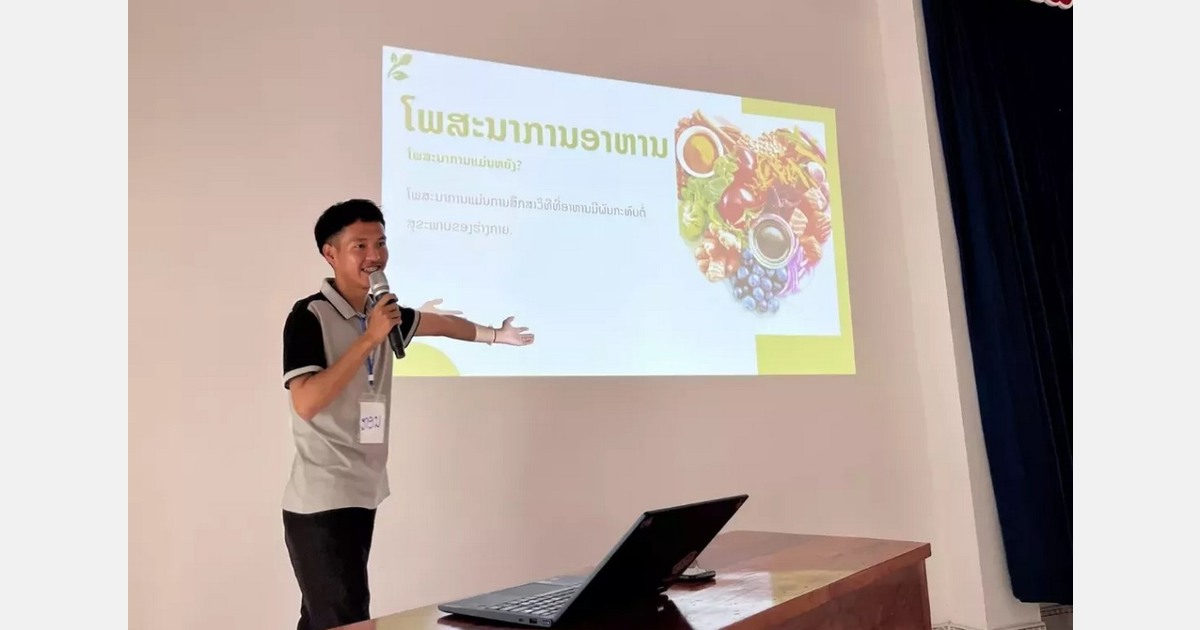In a today’s busy world, fast food and high-sugar drinks dominates diets while chemical-laden crops are widespread in people’s diets, a trend that one youth from Xiengkhouang province of Laos is determined to change in his community.
For Khommangkone Vanhvilay, or Kone, the problem was evident in his own community’s food environment. Vegetables in local markets are often grown with the help of chemical fertilizers and pesticides, and many people around him seem to eat whatever was convenient without thinking about where it came from or how it could affect their health.
 © UNICEF
© UNICEF
Hailing from a family with a background in agriculture, Kone knew how to grow his own hydroponic vegetable garden, a healthier and organic source of vegetables compared to the chemically grown ones found in the markets. Realising the potential of this practice, Kone became interested in sharing the knowledge of growing a hydroponic garden with his peers.
“Traditional farming can lead to soil loss, polluted water and high levels of greenhouse gases emissions. On the other hand, hydroponics can help reduce the use of chemicals in vegetables and soil while also saving water,” said youth advocate Kone.
 © UNICEF
© UNICEF
Through the Youth Champions Laos programme, implemented in partnership with Lao Youth Union and supported by the UNICEF International Council, Kone and his friends launched the ‘HydroGen’ initiative whose goal was twofold: to advocate for healthier diets among youth and introduce a new sustainable way of growing food in his community through hydroponic farming.
The Youth Champions Laos programme gave Kone the skills he needed to kickstart his own advocacy efforts, including leadership and teamwork, how to manage his own project, build networks, as well as how to handle project finances.
 © UNICEF
© UNICEF
Through ‘HydroGen’, Kone organised workshops targeting Xiengkhouang youth on the basics of setting up and maintaining their own hydroponic garden and how they can use their homegrown vegetables to prepare a variety of healthy dishes The goal is to get people healthier, both physically and emotionally, as indoor hydroponic gardening can also be a source of stress reduction as well.
Kone can already see the impact of his efforts with numerous people expressing interest in maintaining their own home hydroponic garden while schools are even considering adding hydroponics into their science or agricultural curricula. Most importantly, Kone has seen a shift in mindset with people in his community becoming more open to new, sustainable ways of producing food and more considerate about what goes into their bodies.
“Through this initiative, we hoped to motivate individuals to alter the way they think and act when it comes to their food,” said Kone.
‘HydroGen’ may be a small project, but it represents an important step in empowering youth-led change towards a healthier and cleaner future for Lao communities. Small acts can start change and with persistence and teamwork, the change can become bigger, much like how a well-kept garden can lead to greater health and happiness.
Source: UNICEF

